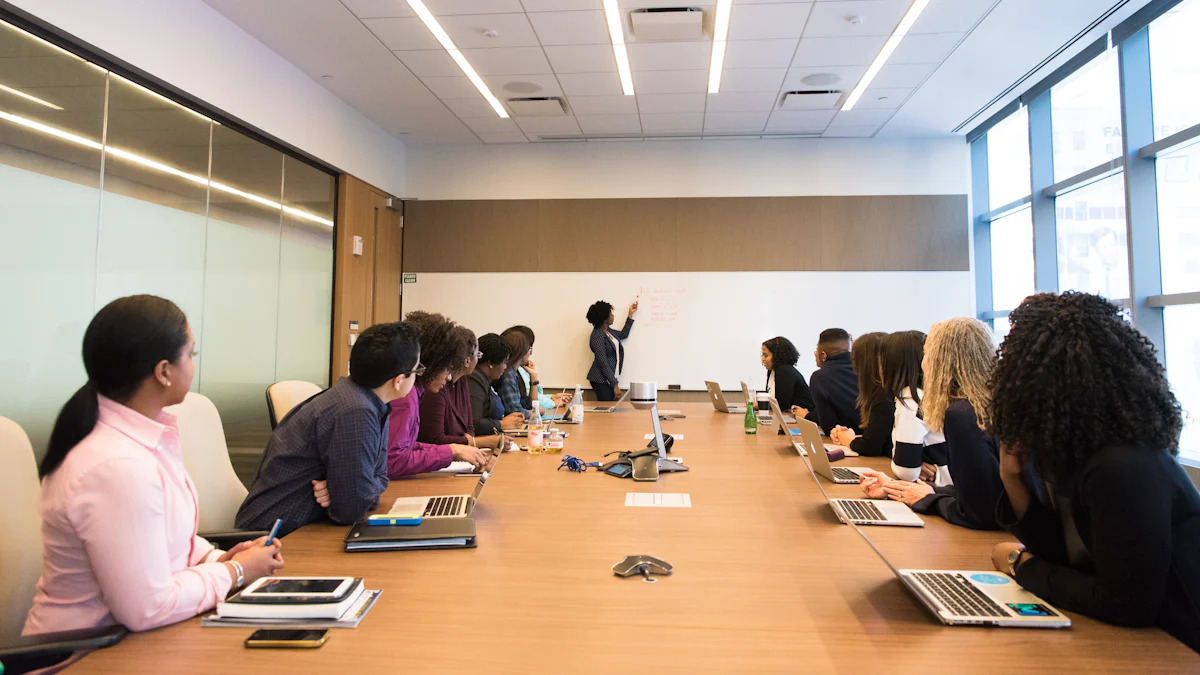how to end a meeting

When wrapping up a meeting, the way you end the meeting can significantly impact your team's productivity and motivation. This blog will guide you through essential strategies to ensure your meetings conclude effectively. By implementing these actionable steps, you can streamline discussions, clarify next steps, and leave participants feeling valued and engaged. Let's delve into the art of concluding meetings with purpose and efficiency.
Preparing for the End
Setting a Clear Agenda
The Importance of an Agenda
An agenda is not merely a list; it's the roadmap to a successful meeting. Without it, discussions can veer off track, wasting time and diluting focus.
Crafting an Effective Agenda
Crafting an effective agenda involves more than listing topics. It requires thoughtful structuring to ensure that each item contributes to the meeting's objectives. Start with clear goals and prioritize items based on their importance and relevance.
Time Management
Allocating Time for Each Agenda Item
Time is a valuable resource in meetings. By allocating specific time slots to each agenda item, you ensure that discussions remain focused and productive. This practice also helps prevent any single topic from dominating the entire meeting.
Utilizing a Timer or Clock
Timers are not just tools for cooking or workouts; they are invaluable aids in meetings too. Set timers for each agenda item to keep discussions on track and prompt transitions between topics seamlessly. A clock visible to all participants serves as a visual reminder of time constraints, encouraging efficiency.
By setting a clear agenda and managing time effectively, you lay the groundwork for a purposeful and efficient meeting conclusion.
Summarizing Key Points

Recap of Decisions Made
Highlight key decisions to reinforce their significance and impact on future actions.
Ensure alignment among all participants by summarizing the conclusions reached during the meeting.
Action Items and Next Steps
Assign tasks promptly to individuals, ensuring clear ownership and accountability.
Set specific deadlines for each task to maintain momentum and drive progress effectively.
Encouraging Final Questions and Feedback

Open Floor for Questions
Dedicate a portion of the meeting's end to an open floor for questions.
Allow participants to seek clarification or raise any lingering doubts.
Post-meeting surveys provide a direct pathway to improvement, uncovering what worked well and what needs tweaking.
Address concerns promptly to ensure that all attendees leave with a clear understanding of the discussed topics.
Gathering Feedback
Emphasize the importance of feedback as a valuable tool for continuous improvement.
Feedback allows hosts and organizers to gauge meeting success and gather attendee opinions effectively.
Attendees' feedback offers insights into their experience, enabling better planning for future meetings.
Closing Remarks
Expressing Gratitude
Cook emphasizes the significance of showing appreciation in strengthening professional relationships. Everyone values feeling acknowledged for their hard work. Thank participants for sharing their time with you and consider offering positive feedback or sharing a light-hearted moment with the group.
Confirming Next Meeting
When confirming the next meeting, set the date and time clearly to ensure everyone can plan accordingly. Additionally, provide a brief preview of the agenda for the upcoming meeting to maintain interest and engagement among participants.
To end a meeting effectively is to ensure that every participant leaves with a clear understanding of the discussed topics and their individual action items. By following the strategies outlined in this blog, you can boost meeting productivity and maintain team motivation. It's crucial to review key decisions, assign tasks promptly, and encourage feedback for continuous improvement. Implementing these steps will guarantee that each meeting concludes with purpose and sets the stage for successful future interactions.
See Also
Effective Strategies for Running Productive Team Meetings
Perfecting Your Skills in Leading Hybrid Zoom Meetings
Conducting Trial Sessions on Google Meet
Creating a Compelling Agenda Template for Administrator Meetings

